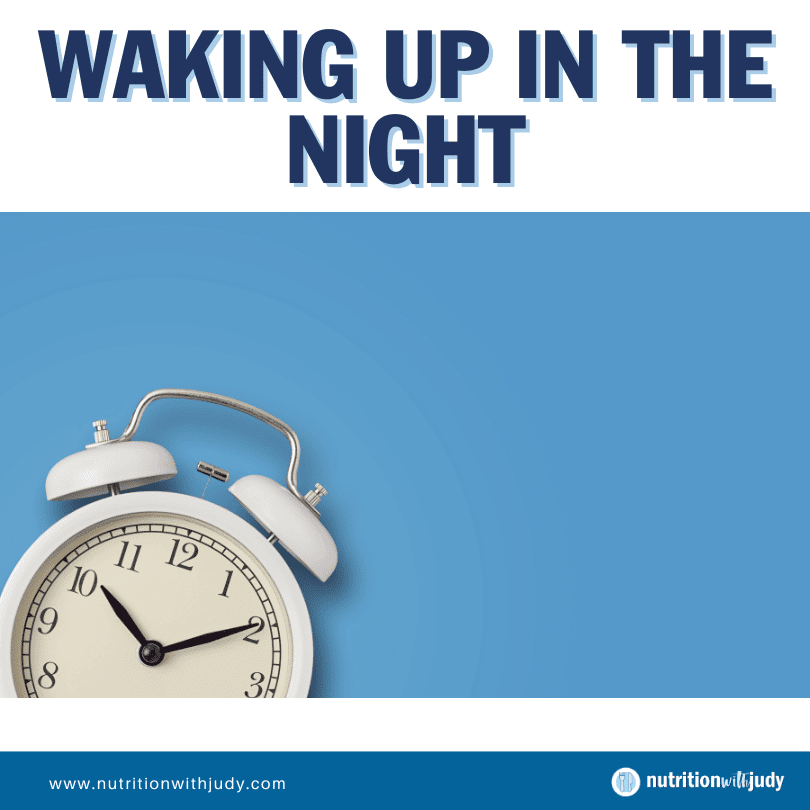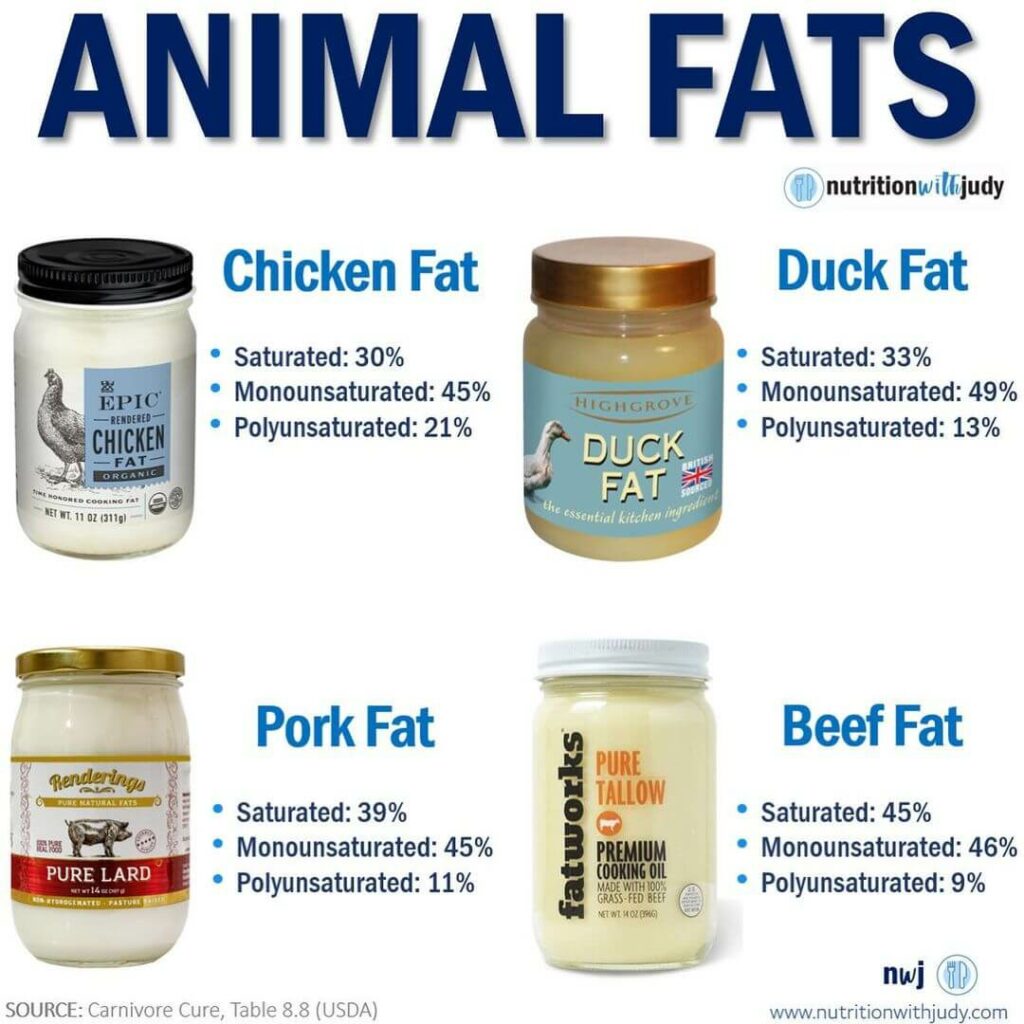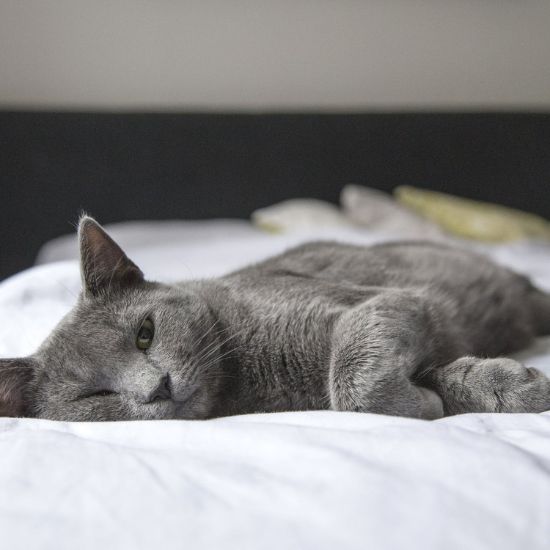

Waking up in the Night


Sleep is one of our most desired activities and also, for some of us, one of the most elusive. According to the CDC, 35% of adult Americans report less than ideal sleep patterns. Some of the main issues that arise from consistent interrupted or poor sleep are heart attacks, coronary heart disease, strokes, asthma, cancers, depression, chronic kidney disease, and diabetes to name a few.
Overall, according to the journal, Sleep, poor sleep hygiene can increase all-cause mortality and plays a starring role in chronic inflammation of the body.
We all have heard how vital good sleep habits are for our health and longevity, and many of us practice these today. We sleep in dark rooms, we stay away from blue light at night, we go out in the sun during the day, we eat plenty of fat, and we move our bodies, but we still find that we are continually waking up in the middle of the night.
Some of us think that we just have to resign ourselves to poor sleep as we age. Poor sleep is something that appears normal, but it is not ideal and certainly not inevitable. We have control, and creating healthy lifestyles and habits contributes to better sleep outcomes overall no matter our chronological age.
Waking up once in the night is completely normal, but if you wake up two or more times during the night, this can interrupt your deep sleep pattern and cause health imbalances. Ideally, we should be sleeping through the night.
One of the major reasons we may find ourselves consistently waking up at night is that we are experiencing something called Nocturnal Hypoglycemia. Nocturnal Hypoglycemia is when we experience low blood sugar while we are sleeping. We may not even be aware this is happening, but this regularly occurs in people with Type I & II Diabetes, metabolically inflexible individuals, some people who exercise late in the evening, and some of us who choose to skip dinner.


Reasons Our Sleep May Be Interrupted
This can be an issue for some, so let’s explore Nocturnal Hypoglycemia and other reasons our sleep may be interrupted:
1. Alcohol Intake
When we drink alcohol, we may find ourselves being able to fall asleep quickly because it is a nervous system depressant, but we may find that we experience poor sleep overall. This is because our liver enzymes continue to metabolize the alcohol all through the night and as our alcohol levels begin to decline we experience sleep disruptions. Alcohol also tends to suppress our REM sleep, which is one of the most restorative types of sleep we experience.
2. Caffeine
This one is pretty obvious. We know that caffeine can be a major impediment to restorative sleep, but caffeine also plays a role in hypoglycemia. This is not usually an issue for healthy adults, but if you have been diagnosed with Type I or II Diabetes, caffeine can alter your blood sugar. Some individuals actually experience a benefit from caffeine, but others aren’t so lucky, which affects them adversely. This might be an area where you have to experiment and determine how caffeine might affect you.
3. Medications
Certain medications and supplements, like potassium, can interrupt our sleep patterns. This is something we need to pay attention to. Whenever starting a new medication or supplement, it is wise to determine what time of day you should take your medications and whether or not any of your medications or supplements interfere with each other to disrupt your sleep. In Type I diabetics, it was determined that insulin can disrupt normal sleep patterns resulting in Nocturnal Hypoglycemia.
4. High-Stress Levels
Environmental stressors can be a major impediment to nourishing sleep. If you are female, you are even more at risk. Additionally, stress can be even more debilitating if you have diabetes and can dramatically increase your risk of developing nocturnal hypoglycemia.
5. Hypothyroidism
An underactive thyroid also plays a role in sleep disruption. If you know you have an underactive thyroid, then you know that your hormones are suffering and this relationship can tremendously undermine achieving a good night’s sleep. Additionally, hypothyroidism and hypoglycemia are related because hypothyroidism can cause slowed glucose uptake and a delayed response to insulin, resulting in hypoglycemia.
6. Insulin Resistance
People who have insulin resistance, even if not technically diabetic, know that they have built up a tolerance to insulin. This hormone is much less effective in their bodies. Interestingly enough, sleep deprivation can cause insulin resistance and insulin resistance can cause sleep disruptions. Our body’s demand for glucose decreases during sleep, especially REM sleep where glucose uptake is at its lowest. If we are insulin resistant, we are altering our body’s ability to regulate blood sugars while we sleep and this can result in sleep disruption.
7. Late Evening Exercise
Exercise is wonderful for increasing your odds of a good night’s sleep, but it can have the opposite effect if practiced close to bedtime. If you find that late evening is the only time available for exercise, try including a high-fat snack for refueling before bed to increase the odds of having a restful night.
8. Menopause
Women who are going through menopause often experience sleep disruption. This could be because of frequent nighttime hot flashes and changes in mood. Being mindful of supporting your hormones during this transition by honoring your circadian rhythm and eating a meat-based high-fat diet will limit the amount of sleep disruption you may experience.
9. Metabolic Inflexibility
Being metabolically flexible, that is, being able to switch quickly and easily from burning glucose for energy to burning fat for energy, is important for many of our bodily functions, especially our mitochondrial energy production. If we are unable to make that switch either through metabolic dysfunction or because we are practicing a fasting method, this can start to interrupt our sleep.
Other reasons you could be waking up at night include WiFi exposure, a poor sleep environment or too much light, sleep apnea, becoming too hot or cold, etc. There are many reasons, but generally, lifestyle modifications can help.
How to Get Better Sleep
1. Consider supplements. There are a few supplements we offer that support a healthy night’s sleep. You could include Alpha-Theta PM or ADHS in your healthy sleep protocol.
2. Continue or start a carnivore diet.
3. Eat more fat. A high-fat carnivore diet is so nourishing for our brains and bodies. It also helps to regulate and support our hormones, resulting in consistent deep sleep.


4. Exercise earlier in the day. Stay away from evening or nighttime exercise to maximize sleep.
5. Get more sun. You can read my blog here about why daytime exposure sun is so vital for a good night’s sleep.
6. Limit caffeine late in the day. This includes chocolate.
7. Limit water in the evening. This will help to reduce bathroom urges while sleeping.
8. Keep your bedroom cool and dark. Our body temperature rises while we sleep. Being cool helps us to stay comfortable.


Closing Thoughts
A healthy, restful night is so rejuvenating and life-affirming. To give our all in life, we need our sleep.
If you eat a mostly meat-based diet and have swapped out all your personal care products but still do not feel you are operating at 100%, you may consider working more closely with the Nutrition With Judy Nutritionist team.
We can work with you in a one-on-one personalized manner and make specific recommendations to support your health journey and discover your root cause and heal.
If you are ready to heal, you can start the process with the Symptom Burden Assessment and a nutritional therapy consult.
DISCLAIMER: The content is for educational purposes only. While I am board-certified in holistic nutrition and a nutritional therapy practitioner, I am not providing medical advice. Whenever you start a new diet or protocol, always first consult with your trusted practitioner.



